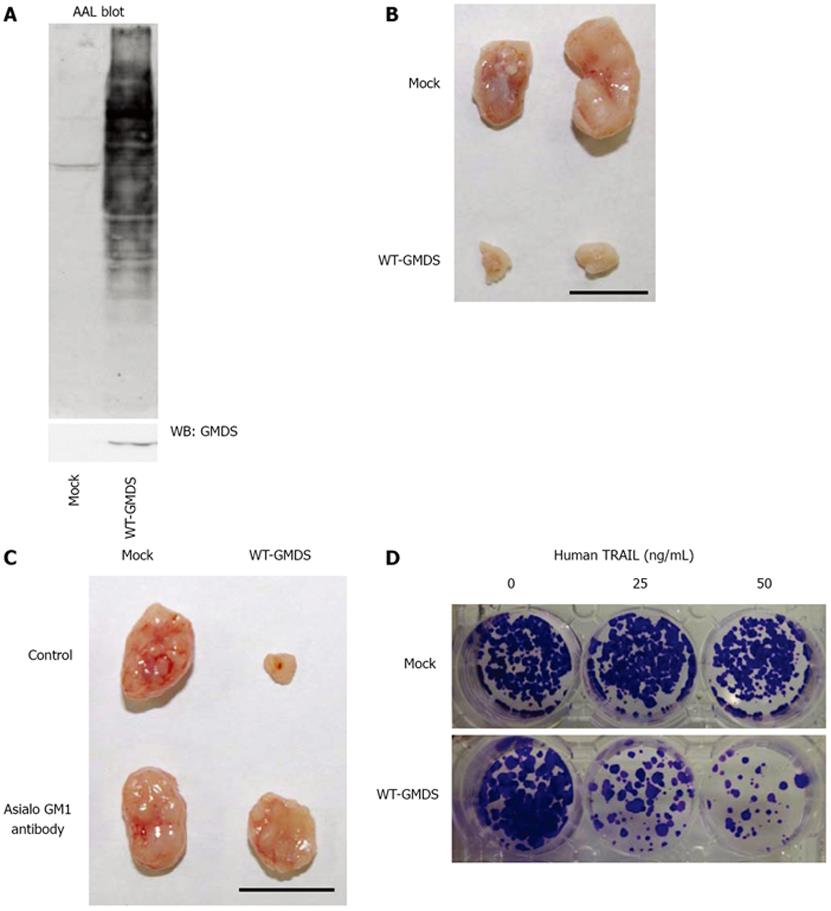Copyright
©2010 Baishideng.
World J Hepatol. Apr 27, 2010; 2(4): 151-161
Published online Apr 27, 2010. doi: 10.4254/wjh.v2.i4.151
Published online Apr 27, 2010. doi: 10.4254/wjh.v2.i4.151
Figure 3 Deficiency of GMDS leads to escape from NK cell-mediated tumor surveillance through modulation of TRAIL signaling[109].
A: After trasnfection of the wild-type GMDS gene into HCT116 cells, Western blot analysis of GMDS and AAL blot analysis were performed. The binding to AAL was restored in transfected cells (WT-GMDS); B: Tumor growth of the GMDS-rescued cells on the backs of athymic nude mice was significantly suppressed compared to mock cells. The bar indicates 10 mm; C: When athymic nude mice were treated with anti-asialo GM1 antibody to deplete NK cells, the tumor growth of the GMDS-rescued cells was accelerated, but not in the case of mock cells. D: The higher susceptibility of the GMDS-rescued cells to TRAIL was confirmed by clonogenic survival assays. These figures are modified from the data in reference 109.
- Citation: Moriwaki K, Miyoshi E. Fucosylation and gastrointestinal cancer. World J Hepatol 2010; 2(4): 151-161
- URL: https://www.wjgnet.com/1948-5182/full/v2/i4/151.htm
- DOI: https://dx.doi.org/10.4254/wjh.v2.i4.151









